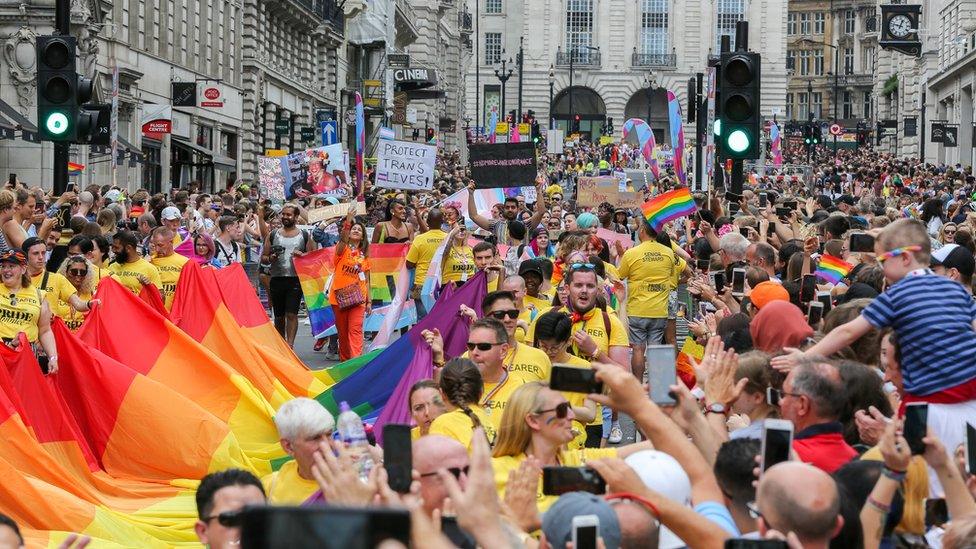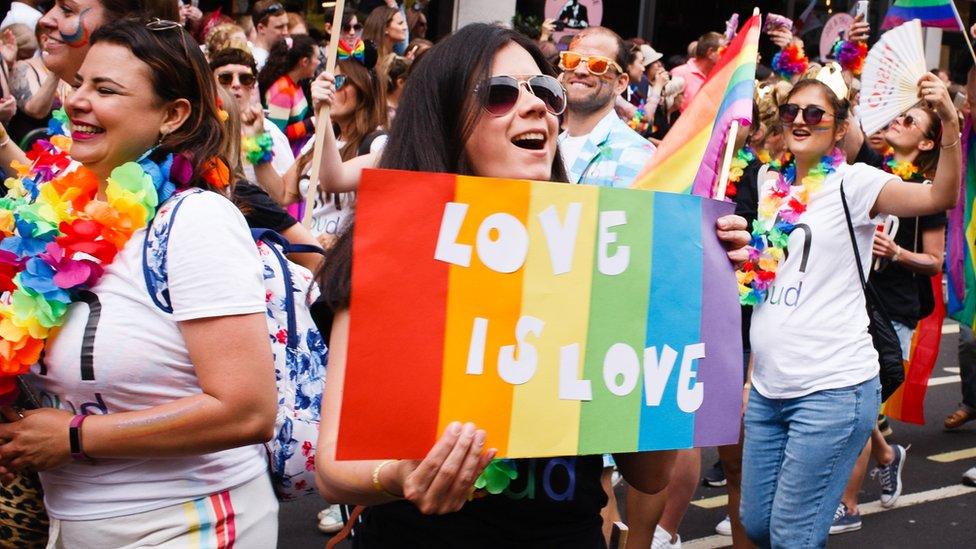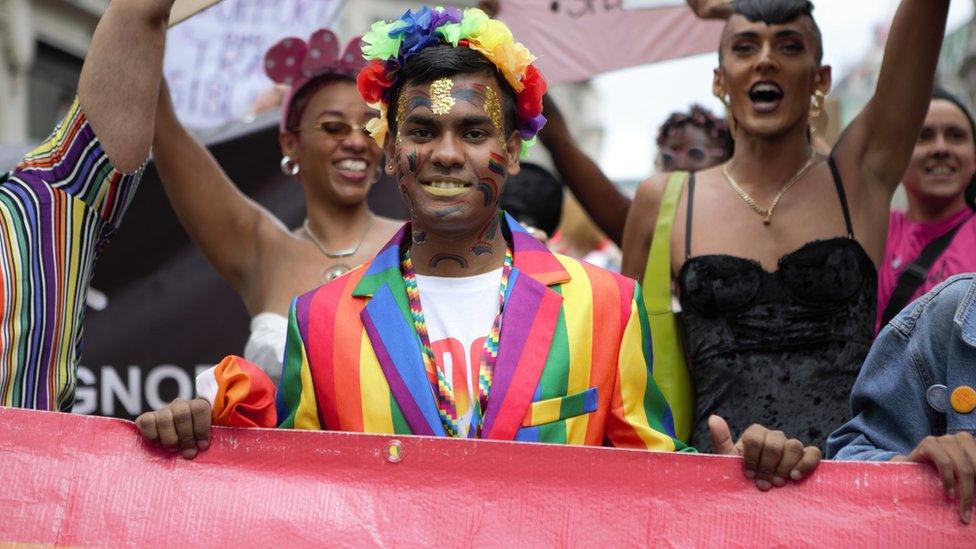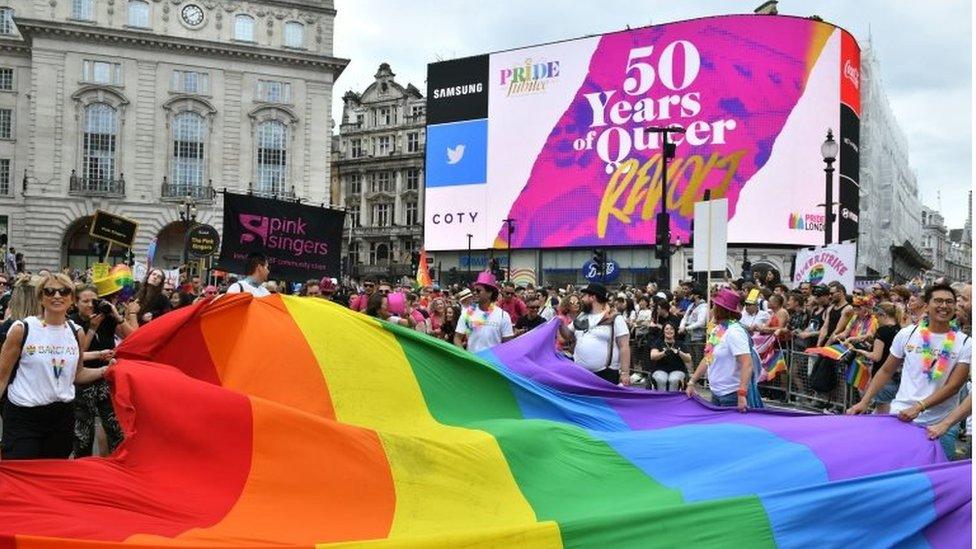Pride in London parade cancelled for second year
- Published

The 2019 parade was attended by more than 1.5 million people
London's Pride parade has been cancelled for a second year due to coronavirus restrictions.
The UK's biggest LGBT pride festival usually takes place in the capital every summer, although it was not staged last year due to the pandemic.
Organisers said this year's event was not possible under current guidelines.
But Culture Minister Caroline Dinenage said there "shouldn't be any reason now that live events shouldn't be able to go ahead".
Explaining the decision, executive director of Pride in London Chris Joell-Deshields said the "crucial parade" could not take place, which would have meant "reducing the event to two or three stages scattered across London with limited tickets".
"This goes against everything we want Pride to be, and everything we've done before," he said, adding that: "No parade, no protest, means no Pride."
However, when asked about the cancellation Ms Dinenage said there "shouldn't be any reason" that live events were not taking place.
"We know that so many [outdoor events] have already - things like Latitude and Tramlines - have already happened.
"There are a whole range of events that are going ahead this summer," she said.


Analysis
Eleanor Lawrie, BBC LGBT producer
News of London Pride's second cancellation will come as a blow to many in the LGBT community.
Pride gives the chance not just to come together, but also to represent and to protest for hard-fought rights. For some it may also be their first chance to publicly celebrate their sexuality.
For one day a year, streets in central London are shut down for the Pride parade, with tens of thousands marching, celebrating, protesting, raising awareness and taking up space in front of over a million spectators. It doesn't get much more high profile than that.
But to go ahead with the London event in a way that complied with government Covid guidelines would have meant reducing the event to just a couple of stages, limiting tickets and - crucially - losing the parade, something the organisers said they were not prepared to do.
The announcement follows the axing of most in-person Pride events in Brighton, which were due to take place this weekend, and many other Pride events in the UK and around the world.
Manchester Pride has had to cancel its main parade, but - as it stands - is set to hold a two-day live music event over the August Bank Holiday.

More than 100 Pride events were cancelled or postponed last year.
The London parade usually attracts huge crowds, with organisers estimating the 2019 parade was attended by more than 1.5 million people.
Reacting to the cancellation, Mayor of London Sadiq Khan said: "It is a real shame that for the second year in a row we will not be able to join together on the streets of London for Pride.
"But although our city continues to open up, we must still be cautious about the spread of Covid-19 and it is understandable why the Pride in London committee have made this decision.
"I truly hope that next year we will be able to unite on our streets once again in solidarity and celebration."

Members and supporters of the LGBT community taking part in the 2019 Pride parade in London
Drag Race UK contestant Bimini Bon Boulash, tweeted, external about the cancellation, promising "we'll go even bigger next year", while Rachel Cunliffe, deputy editor of the New Statesman newspaper, called the cancellations "so sad".
"It's an outdoor parade. If the Euros can happen, why not Pride?," she tweeted, external.
Next year will be 50 years since the first Pride parade in London and organisers have called on the government to "declare 2022 as the year of queer".
"Tomorrow we start planning our return to the streets of London for 2022, with out most inclusive and queerest event yet," Mr Joell-Deshields said.
Related topics
- Published19 March 2021

- Published26 February 2021

- Published23 March 2020
